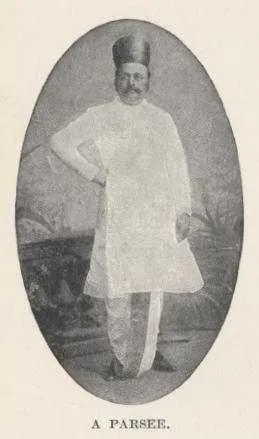Mark Twain - Following the Equator
Здесь есть возможность читать онлайн «Mark Twain - Following the Equator» весь текст электронной книги совершенно бесплатно (целиком полную версию без сокращений). В некоторых случаях можно слушать аудио, скачать через торрент в формате fb2 и присутствует краткое содержание. Год выпуска: 2004, Жанр: Классическая проза, Юмористическая проза, на английском языке. Описание произведения, (предисловие) а так же отзывы посетителей доступны на портале библиотеки ЛибКат.
- Название:Following the Equator
- Автор:
- Жанр:
- Год:2004
- ISBN:нет данных
- Рейтинг книги:3 / 5. Голосов: 1
-
Избранное:Добавить в избранное
- Отзывы:
-
Ваша оценка:
- 60
- 1
- 2
- 3
- 4
- 5
Following the Equator: краткое содержание, описание и аннотация
Предлагаем к чтению аннотацию, описание, краткое содержание или предисловие (зависит от того, что написал сам автор книги «Following the Equator»). Если вы не нашли необходимую информацию о книге — напишите в комментариях, мы постараемся отыскать её.
Following the Equator — читать онлайн бесплатно полную книгу (весь текст) целиком
Ниже представлен текст книги, разбитый по страницам. Система сохранения места последней прочитанной страницы, позволяет с удобством читать онлайн бесплатно книгу «Following the Equator», без необходимости каждый раз заново искать на чём Вы остановились. Поставьте закладку, и сможете в любой момент перейти на страницу, на которой закончили чтение.
Интервал:
Закладка:
The dog was an impressive figure to me, representing as he did a mystery whose key is lost. He was humble, and apparently depressed; and he let his head droop pensively, and looked as if he might be trying to call back to his mind what it was that he had used to symbolize ages ago when he began his function. There was another impressive thing close at hand, but I was not privileged to see it. That was the sacred fire—a fire which is supposed to have been burning without interruption for more than two centuries; and so, living by the same heat that was imparted to it so long ago.
The Parsees are a remarkable community. There are only about 60,000 in Bombay, and only about half as many as that in the rest of India; but they make up in importance what they lack in numbers. They are highly educated, energetic, enterprising, progressive, rich, and the Jew himself is not more lavish or catholic in his charities and benevolences. The Parsees build and endow hospitals, for both men and animals; and they and their womenkind keep an open purse for all great and good objects. They are a political force, and a valued support to the government. They have a pure and lofty religion, and they preserve it in its integrity and order their lives by it.

We took a final sweep of the wonderful view of plain and city and ocean, and so ended our visit to the garden and the Towers of Silence; and the last thing I noticed was another symbol—a voluntary symbol this one; it was a vulture standing on the sawed-off top of a tall and slender and branchless palm in an open space in the ground; he was perfectly motionless, and looked like a piece of sculpture on a pillar. And he had a mortuary look, too, which was in keeping with the place.
CHAPTER XLI.
There is an old-time toast which is golden for its beauty. "When you ascend the hill of prosperity may you not meet a friend."
—Pudd'nhead Wilson's New Calendar.
A Jain Temple—Mr. Roychand's Bungalow—A Decorated Six-Gun Prince—Human Fireworks—European Dress, Past and Present—Complexions—Advantages with the Zulu—Festivities at the Bungalow—Nautch Dancers—Entrance of the Prince—Address to the Prince
The next picture that drifts across the field of my memory is one which is connected with religious things. We were taken by friends to see a Jain temple. It was small, and had many flags or streamers flying from poles standing above its roof; and its little battlements supported a great many small idols or images. Upstairs, inside, a solitary Jain was praying or reciting aloud in the middle of the room. Our presence did not interrupt him, nor even incommode him or modify his fervor. Ten or twelve feet in front of him was the idol, a small figure in a sitting posture. It had the pinkish look of a wax doll, but lacked the doll's roundness of limb and approximation to correctness of form and justness of proportion. Mr. Gandhi explained every thing to us. He was delegate to the Chicago Fair Congress of Religions. It was lucidly done, in masterly English, but in time it faded from me, and now I have nothing left of that episode but an impression: a dim idea of a religious belief clothed in subtle intellectual forms, lofty and clean, barren of fleshly grossnesses; and with this another dim impression which connects that intellectual system somehow with that crude image, that inadequate idol—how, I do not know. Properly they do not seem to belong together. Apparently the idol symbolized a person who had become a saint or a god through accessions of steadily augmenting holiness acquired through a series of reincarnations and promotions extending over many ages; and was now at last a saint and qualified to vicariously receive worship and transmit it to heaven's chancellery. Was that it?
And thence we went to Mr. Premchand Roychand's bungalow, in Lovelane, Byculla, where an Indian prince was to receive a deputation of the Jain community who desired to congratulate him upon a high honor lately conferred upon him by his sovereign, Victoria, Empress of India. She had made him a knight of the order of the Star of India. It would seem that even the grandest Indian prince is glad to add the modest title "Sir" to his ancient native grandeurs, and is willing to do valuable service to win it. He will remit taxes liberally, and will spend money freely upon the betterment of the condition of his subjects, if there is a knighthood to be gotten by it. And he will also do good work and a deal of it to get a gun added to the salute allowed him by the British Government. Every year the Empress distributes knighthoods and adds guns for public services done by native princes. The salute of a small prince is three or four guns; princes of greater consequence have salutes that run higher and higher, gun by gun,—oh, clear away up to eleven; possibly more, but I did not hear of any above eleven-gun princes. I was told that when a four-gun prince gets a gun added, he is pretty troublesome for a while, till the novelty wears off, for he likes the music, and keeps hunting up pretexts to get himself saluted. It may be that supremely grand folk, like the Nyzam of Hyderabad and the Gaikwar of Baroda, have more than eleven guns, but I don't know.
When we arrived at the bungalow, the large hall on the ground floor was already about full, and carriages were still flowing into the grounds. The company present made a fine show, an exhibition of human fireworks, so to speak, in the matters of costume and comminglings of brilliant color. The variety of form noticeable in the display of turbans was remarkable. We were told that the explanation of this was, that this Jain delegation was drawn from many parts of India, and that each man wore the turban that was in vogue in his own region. This diversity of turbans made a beautiful effect.
I could have wished to start a rival exhibition there, of Christian hats and clothes. I would have cleared one side of the room of its Indian splendors and repacked the space with Christians drawn from America, England, and the Colonies, dressed in the hats and habits of now, and of twenty and forty and fifty years ago. It would have been a hideous exhibition, a thoroughly devilish spectacle. Then there would have been the added disadvantage of the white complexion. It is not an unbearably unpleasant complexion when it keeps to itself, but when it comes into competition with masses of brown and black the fact is betrayed that it is endurable only because we are used to it. Nearly all black and brown skins are beautiful, but a beautiful white skin is rare. How rare, one may learn by walking down a street in Paris, New York, or London on a week-day—particularly an unfashionable street—and keeping count of the satisfactory complexions encountered in the course of a mile. Where dark complexions are massed, they make the whites look bleached-out, unwholesome, and sometimes frankly ghastly. I could notice this as a boy, down South in the slavery days before the war. The splendid black satin skin of the South African Zulus of Durban seemed to me to come very close to perfection. I can see those Zulus yet—'ricksha athletes waiting in front of the hotel for custom; handsome and intensely black creatures, moderately clothed in loose summer stuffs whose snowy whiteness made the black all the blacker by contrast. Keeping that group in my mind, I can compare those complexions with the white ones which are streaming past this London window now:

A lady. Complexion, new parchment. Another lady. Complexion, old parchment.
Читать дальшеИнтервал:
Закладка:
Похожие книги на «Following the Equator»
Представляем Вашему вниманию похожие книги на «Following the Equator» списком для выбора. Мы отобрали схожую по названию и смыслу литературу в надежде предоставить читателям больше вариантов отыскать новые, интересные, ещё непрочитанные произведения.
Обсуждение, отзывы о книге «Following the Equator» и просто собственные мнения читателей. Оставьте ваши комментарии, напишите, что Вы думаете о произведении, его смысле или главных героях. Укажите что конкретно понравилось, а что нет, и почему Вы так считаете.











